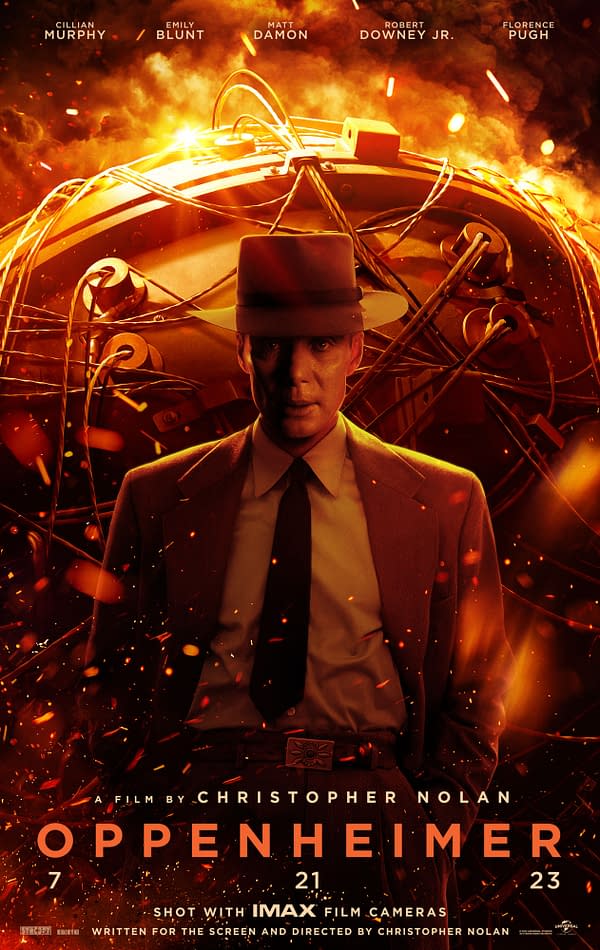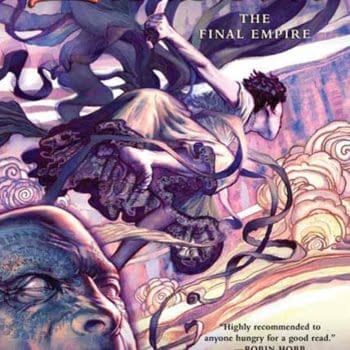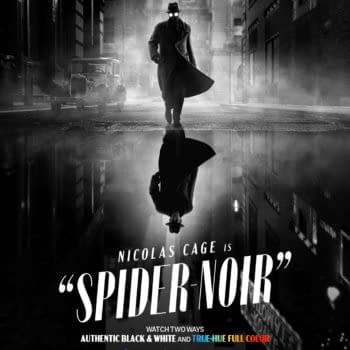Posted in: Movies, Review, Universal | Tagged: American Prometheus, atom bomb, christopher nolan, cillian murphy, oppenheimer
Oppenheimer: A True Epic & Nolan's Most Accomplished Film
Christopher Nolan's Oppenheimer is his most accomplished movie, a moral epic about the ecstasy and terror of the creating the atom bomb.
It's weird and galling to hear Hollywood call Oppenheimer an IP when it's the story of a real-life man, but it's one of the few most-see movies of 2023, a genuine film for thinking adults and Christopher Nolan's best, most accomplished, and complete film. An epic adapted from Martin Sherwin and Kai Bird's epic biography American Prometheus: The Triumph and Tragedy of J. Robert Oppenheimer, the film is less a conventional biopic as a tone poem, a sometimes inscrutable mind journey that traverses Space and Time. Nolan's cinematic influences are clear: he draws on the epic grandeur of David Lean, the intellectual chilliness of Stanley Kubrick, the blue austerity of Jean-Pierre Melville, the buddy camaraderie of Howard Hawks, the nonlinear hallucinations of Nicolas Roeg.

Oppenheimer is the story of a man who knows everything but understands not enough, because to know the vastness of what he sees could drive him mad. His tragedy is he feels guilt and remorse but never fully comprehends the enormity of what he has done because no one can possibly remain sane that way. Murphy's gaunt face and haunted eyes are the greatest special effect in this movie, more than the real explosion that Nolan's crew created from practical effect (of course, he didn't set off a real nuke – that's a Crime Against Humanity!) Murphy's Tommy Shelby in the hit gangster saga Peaky Blinders was a doomed man resigned to a life of crime who discovers his calling fighting the ultimate evil – fascism. His Oppenheimer is a living ghost haunted by the knowledge that he may have given humanity the instrument of their extinction; his mind unmoored from futures he fears he's closed off forever. The second story is that of Lewis Strauss' (Robert Downey, Jr.) attempt to claim a position of power by destroying Oppenheimer in an act of envy and spite.
Every biopic, whether epic or intimate, becomes a self-portrait of the storyteller. Oppenheimer is not different. It may be ostensibly about the story of J. Robert Oppenheimer and the burden he carried and the consequence he suffered for inventing the atom bomb, but the real subtext is Nolan's preoccupation with being an artist grappling with his contradictory emotional and intellectual impulses. He wants to be a grand showman of great entertainment but also a great artist exploring the grandest themes for posterity. Oppenheimer is a flawed epic that doesn't fully succeed in balancing its head with its heart because it doesn't completely trust its – and Oppenheimer's and Nolan's – emotions. It's not completely successful because of Nolan's own emotional chilliness and detachment. He's good with suspense and horror but less sure with human emotion beyond a kind of aloof melancholy. The movie is a portrait of male burdens, of friendship between men, and how the jealousy and envy of small men try to destroy great men. Because of that, the women in Nolan's movies get short shrift. Jean Tatlock (Florence Pugh) and Kitty Oppenheimer (Emily Blunt) are tough real-life women but become the same types of unpredictable and unstable women who vexed Nolan's heroes in his previous films, quasi-femme fatales like Anne Hathaway's Selina Kyle and Marion Coutillard's Talia al-Ghul in The Dark Knight Rises. Nolan even manages to have his usual puzzle-box mystery structure with the question of what the truth behind Oppenheimer's true motives were, and what he and Einstein really said to each other in 1947.
In Nolan's eyes, Science and Art are the same, and the scientist Oppenheimer is a great artist who creates art that could destroy the world. The movie is about the beauty and terror in the act of artistic creation and how art demands to be made. Oppenheimer and his team's masterpiece is the atom bomb, and there is a deterministic view of the plight of scientists and artists: they can't stop creating, even if their creation might end the world.















